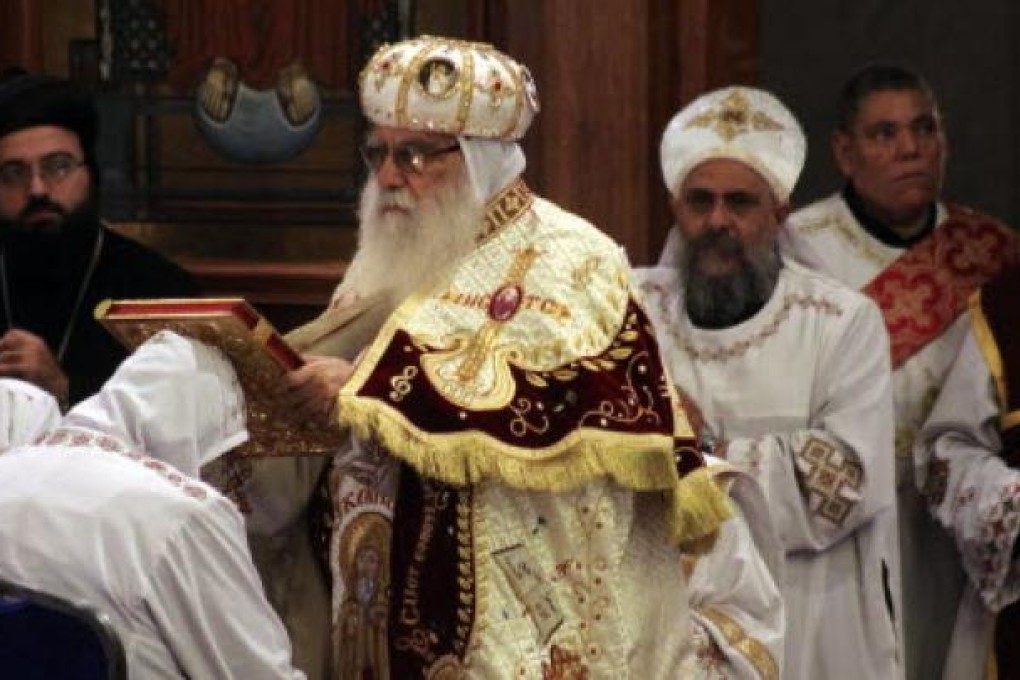
Pope Tawadros II was enthroned on Sunday as the new head of Egypt’s Copts in an elaborate ceremony at Cairo’s St Mark’s Cathedral amid rising fears about the community in a country now ruled by Islamists.
Dozens of Coptic Christian clerics in flowing robes took part in the four-hour ceremony, the first in four decades, as the cathedral bells tolled.
Tawadros received the ornate crown and crucifix from Bishop Pachomius, who had served as the church’s interim leader, before ascending the huge wooden throne of St Mark embossed with lions.
Arabic, English and Greek mingled with the ancient Coptic language of the church’s liturgy in the psalms and prayers of the service and the tributes of well-wishers.
Tawadros, 60, was chosen on November 4 to succeed Pope Shenuda III, who died in March. He was chosen after a blindfolded altar boy picked his name from a chalice, according to church custom.
He becomes spiritual head of the largest Christian minority in the Middle East and 118th pope in a line dating back to the origins of Christianity and to Saint Mark, the apostle and author of one of the four Gospels, who brought the new faith to Egypt.